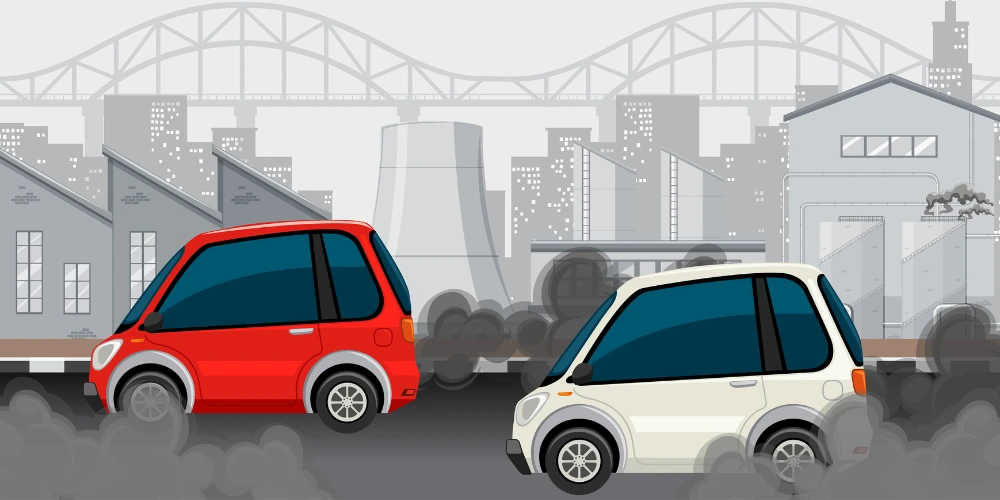Introduction: While There are many new features in the modern vehicles, one of the most important of them is the Anti-lock Braking System (ABS). While lots of rigidity and precision consistently aim to completely lock up the wheels in instances where a vehicle is braking ferociously, the ABS helps in improving the vehicle’s steer ability and control with limited or no skidding during an emergency stop. It is worthy of note that con unfortunately, the ABS can develop some issues that would reduce its efficiency when it comes to boosting safety on the roads. At least with a basic knowledge of these issues it should be possible to keep your ABS system in good working order and safe! In this blog, we will discuss the ABS system problems and how to fix them.
1. ABS Warning Light Activation
Among the numerous and diverse symptoms concerning ABS system problems, one could point out the ABS warning light blinking on your car’s dashboard. This light comes on sometimes when there is something wrong with the ABS and the wrong could be in the sensors, hydraulic control or the brake fluid being low. If this is not heeded, the car’s braking lowers and this requires the problem to be solved as soon as possible.
How to Fix: Another common practice is to turn on the ABS warning light; in this case, an OBD-II scanner must be used to pull the DTCs from a car’s computer. These codes can help in trying to find out what may have led to the ABS warning light to turn on. Depending on the problem diagnosed, it may require replacing a faulty sensor, rewiring or hydraulic system problems.
If you have concerns with suppressing dashboard lights or if you want to learn about a specific car part, then this is a place where you can get all your answers and worries addressed without having to bring the car in for diagnosing and fixing when complications occur saving you a lot of cash as well as the stress of driving a dangerous car.
2. Faulty ABS Sensor
ABS system problems; The closure of circuits revolves on Wheel speed sensors which are responsible for assessing the rotation of wheels. These sensors send vital information to the ABS control module that in turn will help the ABS decide how much brake force needs to be applied to each of the car’s wheels. The occurrence of an error with one or more of these sensors would result in wrong readings being recorded with an impact on the system. Signs of a bad ABS sensor can comprise of an unsteady braking pedal, a slower stopping distance, or the lighting up of the ABS symbol.
How to Fix: The first step in identifying a problem in the ABS sensor is to assess the sensors the same as you would do in a new module for and check for any sign of physical contact, dirt or any other material that may have accumulated and is preventing the sensor from working as it should. Sometimes it is enough to clean the sensors to get them working fine. If this is not resolved then the sensor might have to be changed. This job is usually done with some level of disassembling of the wheel and the brake, thus it is advisable to be handled by a mechanic.
3. Brake Pedal Pulsation
Another common ABS issue is a pulsating brake pedal during braking. This sensation is typically felt when the ABS activates to prevent wheel lockup; however, if you notice that the pedal pulses frequently or under normal braking conditions, it may indicate a malfunction in the ABS module or hydraulic control unit. Such pulsation can lead to decreased braking performance and should not be ignored.
How to Fix: If you experience persistent brake pedal pulsation, it’s crucial to have your vehicle inspected by a qualified mechanic. They can diagnose whether the pulsation stems from a malfunctioning ABS module, warped brake rotors, or issues with the hydraulic control system. Properly diagnosing the root cause will ensure that you receive the appropriate repairs and restore safe braking performance.
4. Hydraulic Control Unit Problems
The hydraulic control unit (HCU) is responsible for regulating brake fluid pressure in the ABS system. If the HCU is malfunctioning, it can lead to erratic braking behavior, such as reduced stopping power or unresponsive brakes. Issues with the HCU can often manifest during hard braking, leading to a significant decrease in vehicle control.
How to Fix: If you suspect problems with the HCU, it’s advisable to have a professional diagnose the issue. The HCU can be complex, and specialized equipment may be necessary to assess its functionality accurately. Depending on the severity of the problem, the HCU may need to be repaired or replaced, which can be a more involved process than fixing other ABS components.
5. Brake Fluid Leaks
Low brake fluid levels can significantly affect the performance of the ABS system. Brake fluid leaks in the brake fluid lines, master cylinder, or other components can lead to insufficient fluid pressure, which negatively impacts braking performance and may trigger the ABS warning light. In some cases, you may also notice a spongy or soft brake pedal, which indicates the need for immediate attention.
How to Fix: Regularly check your brake fluid levels and inspect for any visible leaks in the brake lines or connections. If a leak is found, it should be repaired immediately to prevent further damage to the ABS system and ensure your vehicle’s safety. Always refill with the appropriate type of brake fluid, as specified in your vehicle’s manual, to maintain optimal braking performance.
6. Wheel Speed Sensor Malfunction
The ABS system relies on accurate wheel speed data to function correctly. If a wheel speed sensor malfunctions or becomes disconnected, it can lead to ABS activation at inappropriate times, resulting in a loss of braking control. In severe cases, the ABS may not engage when it should, further increasing the risk of skidding.
How to Fix: Inspect the wiring and connections of the wheel speed sensors to ensure they are intact. If you find any damaged wires or connectors, they should be repaired or replaced. If the sensors themselves are malfunctioning, replacing them is often a straightforward task. A qualified mechanic can help with diagnostics and ensure that the ABS system operates as intended.
Conclusion
The Anti-lock Braking System is an essential component of your vehicle’s safety features, and addressing ABS system problems promptly is vital for maintaining optimal braking performance. Regular maintenance, timely diagnosis, and proper repairs can significantly enhance your vehicle’s safety and reliability.
If you encounter ABS system issues, it’s important to consult with a qualified mechanic for a thorough inspection. At Vander Engines, we not only provide high-quality used engines and transmissions but also support your vehicle’s longevity. Whether you’re in need of a replacement part or a specific model like a 2007 Acura MDX engine, we are here to help you keep your vehicle running smoothly.




